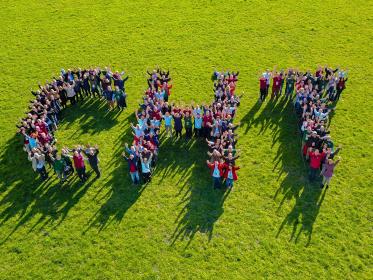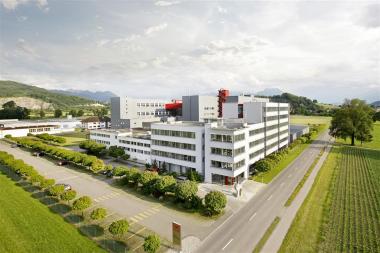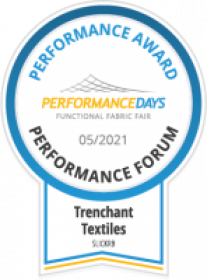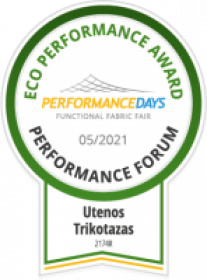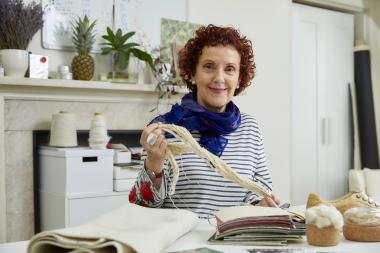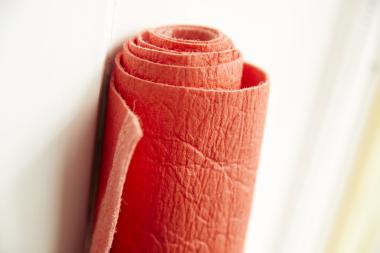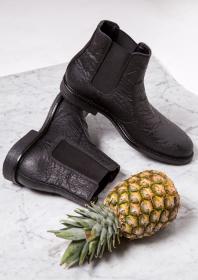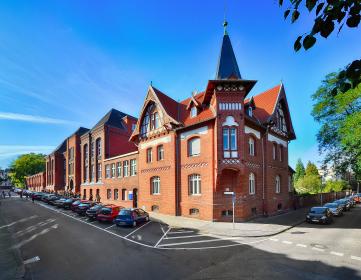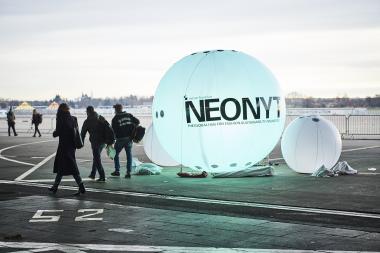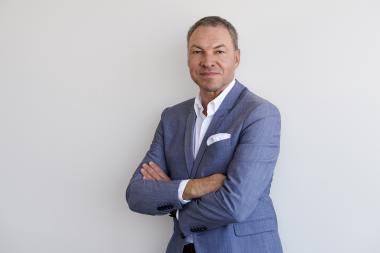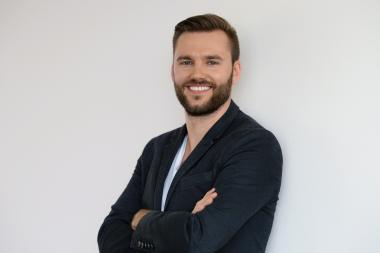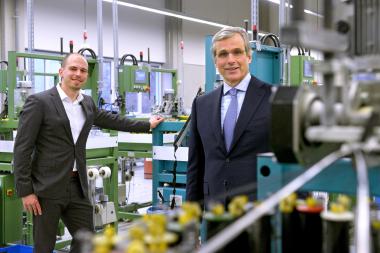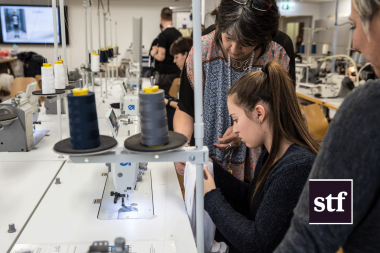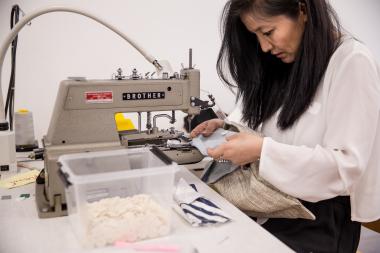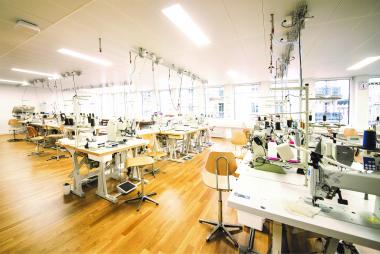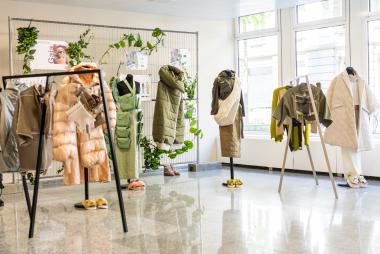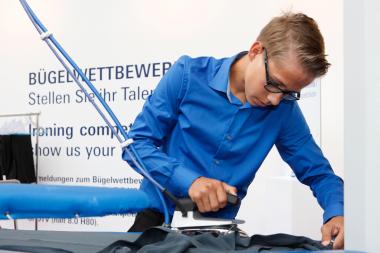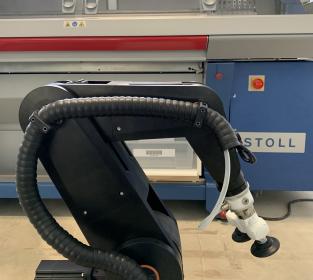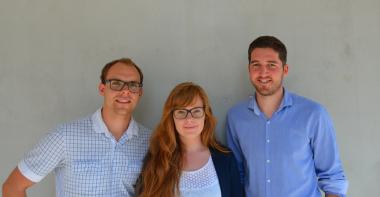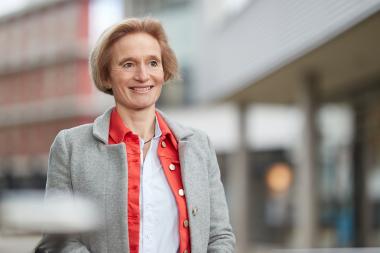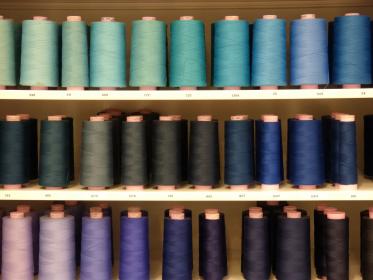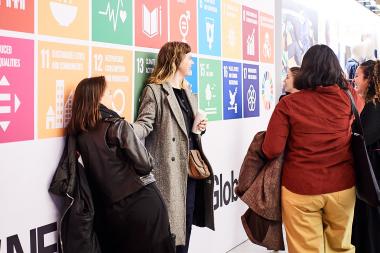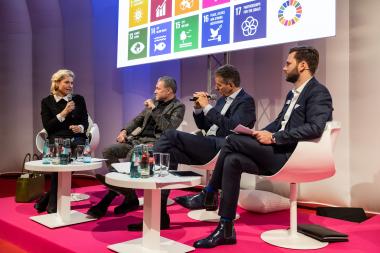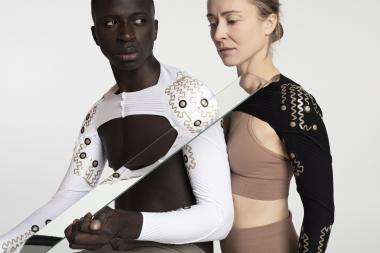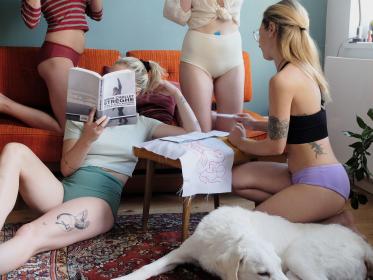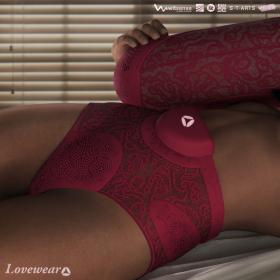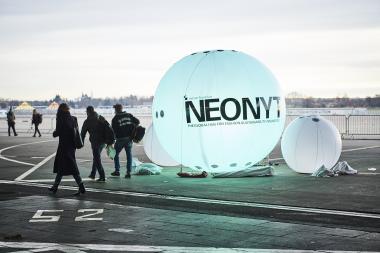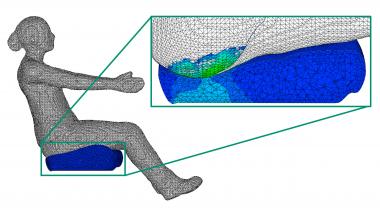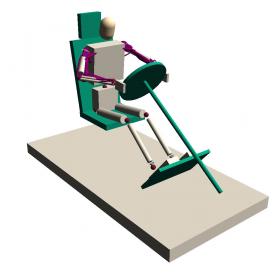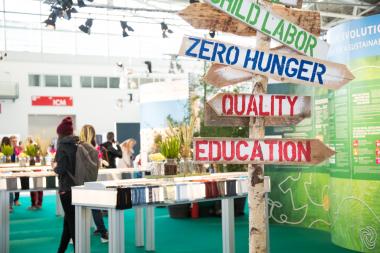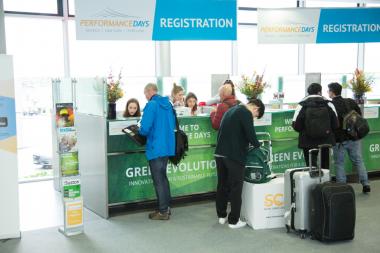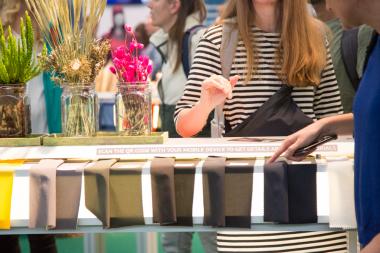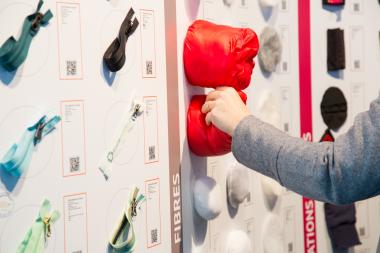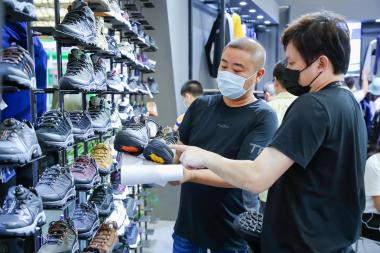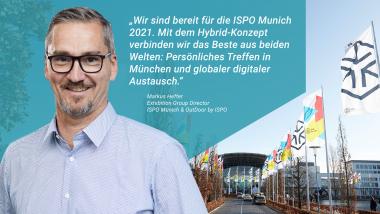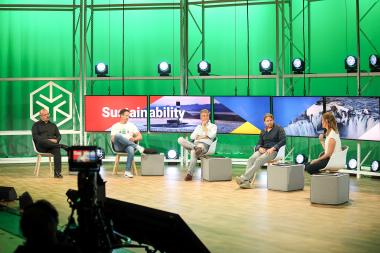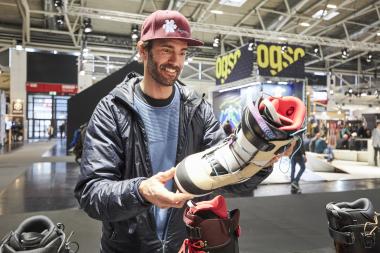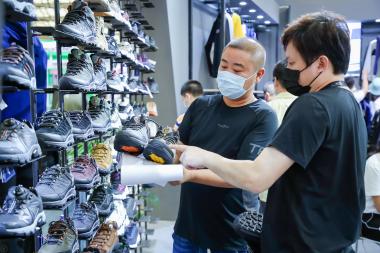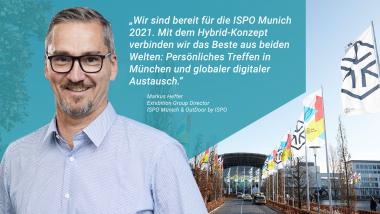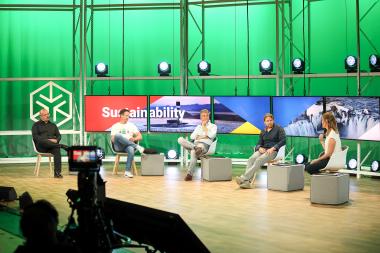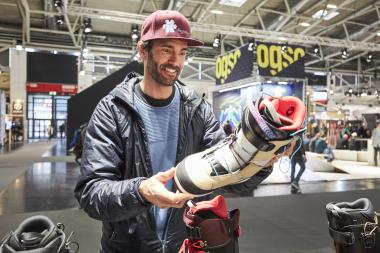CHT: "We are hiring." Humans Resources Policy in Times of Pandemic and Skills Shortage
The CHT Group is a globally operating company group for specialty chemicals. It has been in business for more than 65 years in a wide variety of industrial sectors and markets. Innovative and high-quality specialty chemicals alongside convincing services are just as much part of the portfolio as chemical auxiliaries and additives.
Textination spoke with Kurt Speckle [Head of Technical Service Dyestuffs] and Ursula Häberli [Head of Human Resources] specifically for the Textile Solutions division about the challenges of a successful human resources policy in such special times as a pandemic and the shortage of skilled workers.
The Technical Service Dyestuff department, headed by Kurt Speckle, who has worked for CHT for 32 years, currently comprises 16 people. It consists of a technical staff, which supports customers worldwide in the form of technical advice, on-site trials, lectures and in the creation of presentations, as well as a laboratory team, which handles inquiries regarding color settings, problem solutions, fastness, etc. Depending on the customer inquiry, both departments work hand in hand together.
The know-how and the heart of the technical staff consists of six people, all 50+, whom Kurt Speckle - with a grin - also calls "textile dinosaurs". In addition, young technicians with operational experience are being trained in order to be introduced to larger tasks. The apprenticeship training for textile laboratory technicians at CHT SWITZERLAND AG has a supporting effect.
As a globally operating company group for specialty chemicals, the CHT Group has been active in numerous industrial sectors and markets of 20 countries for more than 65 years. CHT Switzerland AG turns 50 this year and is the world's competence center for dyes. How has it been possible to establish and maintain such a good market position in dyes?
Kurt Speckle: In addition to the quality level of our products and the wide range of more than 700 products covering the various quality requirements of today's customers, CHT Switzerland also offers an excellent technical service for the product application. This globally known additional service makes us interesting for customers and generates inquiries worldwide. Transferring customer-specific problem solutions from our laboratory to production is one of the keys to our success.
In the Textile Solutions division, you have a wide range of specialty chemicals and dyes for textile production in your portfolio. In your opinion, in which direction is the textile industry currently moving in terms of dye chemistry - what trends do you see? What does this mean for your product range?
Kurt Speckle: One of the challenges today is to find the right dye gamma for the desired application. In recent years, we have constantly adapted the range to the new needs and requirements. In addition to these technical specifications, the entire textile finishing industry is also constantly confronted with new ecological and toxicological legal requirements. Textiles and also technical textiles not only have to meet certain fastness requirements, but also have to comply with countless label requirements. REACH and many labels lead to constant adjustments in the dye finishing to ensure that the products are up-to-date with the latest technology.
How does optimal teamwork work in the dyestuff team, and how can you ensure that the knowledge and experience gained over many years is passed on?
Kurt Speckle: Exchange of experience works with people who have practical experience. Only this can be built upon and new information can be stored accordingly. We operate and communicate on a common drive. Lively verbal communication is also essential for this. Our own tests in the laboratory and also in the production at customers' sites form the actual wealth of experience of our employees.
We are observing various megatrends that have taken a new turn as a result of the pandemic and that also directly affect your customers in the textile industry: Neo-ecology, connectivity and digitalization, health - to name just a few. To what extent does this challenge you as a service provider for your customers and as an employer? Is there a changed requirements profile for your employees?
Kurt Speckle: Due to the omission of traveling and direct customer contact, the working picture has of course changed. Due to the experience potential, however, many problem inquiries can be processed and solved via a wide variety of communication options. However, this cannot be seen as a sustainable and permanently established system. Experience and further development can only take place through practical trials on the most varied machines under the most varied conditions and with our dyes.
In which areas of training - whether at university or in apprenticeships - do you see a need for improvement in the curricula? Do career starters have the necessary skills for your company, or do you need to provide additional training in fundamental required areas?
Ursula Häberli: We train our future pool of specialists internally. In addition, we have several apprentices every year as textile and chemical laboratory technicians, whom we offer a permanent position afterwards. The training at the vocational school and in the advanced courses is excellent. The apprentices are challenged in many different areas. Textile laboratory assistants complete exactly the same training as chemical laboratory assistants, but have additional 240 lessons of textile training and textile courses. Textile laboratory assistants now require very extensive, in-depth and broad specialist knowledge. The textile industry is developing rapidly and new, complex content is constantly being added to the already very broad basic knowledge. We also actively support further education, for example the BSc Design & Technology at the Swiss Textile College. This training is broadly based and provides employees with good specialist knowledge and various additional essential skills.
What do you think about the personnel situation at CHT in general? Can you fill all positions? Who are you currently looking for most urgently?
Ursula Häberli: Our long-standing market presence and the good reputation we have built up over 50 years with our "customer first" approach always help us to attract talent. We are currently looking for a person as a textile technician for the Dyestuffs BU. Here we are planning early for the succession of a textile dinosaur who may retire in 2022. And for the Garment Team we are also looking for a textile technician.
The garment sector is a textile specialty that has been increasingly relocated to eastern countries in the last 10 years. Therefore, the search will certainly be a challenge.
You have built a career portal for CHT at https://career-switzerland.cht.com. With this website, you directly address different target groups: Apprentices, students, young professionals and experienced professionals. What role do the "old stagers" play in the company group?
Ursula Häberli: The old stagers are sometimes called "dinosaurs" by us - textile workers like them, with an often lifelong career in the textile world, are rare, pessimistically speaking: dying out. But all joking aside, the old stagers are enormously important. It is up to them to actively pass on their knowledge to future generations. This is already working very well on a day-to-day basis. The dyestuff team - including the boss - deliberately sits together in one large room so that a lot can be overheard and discussed. The team recently launched the "Textile Lunches". These are short concise learning nuggets to share knowledge and experience.
Employer branding seems to have been the magic word for some time now. Create an attractive employer brand, focus on strengths such as open corporate culture, transparent communication, responsibility for one's own area and employee benefits - and all positions are filled very quickly. What does CHT think of employer branding, what experience have you had with it, and what special offers do you provide to prospective employees?
Ursula Häberli: With the career site https://career-switzerland.cht.com, we have deliberately chosen a modern, outward-looking tool to strengthen our employer brand. CHT ambassadors tell their stories and make job seekers want to join us and help shaping the future. Another big plus is that the workplace is located in a wonderful landscape with a high recreational value, close to Lake Constance and an impressive mountain landscape, where our employees like to spend their time.
For some time now, the CHT company group has been operating under a new claim: Chemistry with Character. This statement was created for marketing purposes, but it certainly also says something about the company. What does this claim mean in particular for your personnel policy? Who is already on your team? Who are you looking for? And how many rough edges are employees allowed to have?
Ursula Häberli: We are looking for doers with high team player qualities. That's what sets us apart and makes us prepared for the future. We offer an extremely exciting field of work that demands a high degree of personal responsibility, initiative and creativity. We are proud to be the competence center for dyes at the Montlingen site - one of the few companies in the geographic area of Eastern Switzerland / Vorarlberg / Southern Germany that still exists and will continue to exist for a long time.
The interview was conducted by Ines Chucholowius, Managing partner Textination GmbH
CHT Group dyeing and finishing textile specialty chemicals specialty chemicals dyes and specialty chemicals
Textination GmbH



